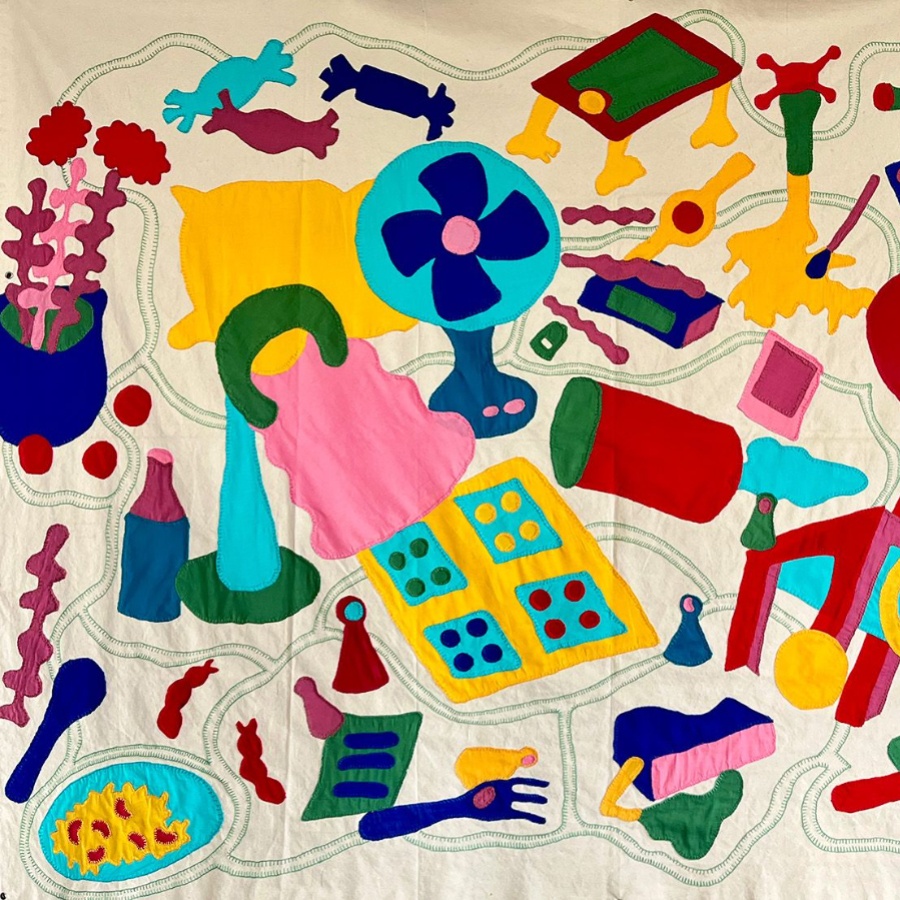Hansal Mehta’s new film, The Buckingham Murders, is all set to hit theatres this week. It’s a much anticipated murder mystery, and the lead, Kareena Kapoor Khan, is easily the biggest ‘A-list star’ he has ever directed. Yet he agrees to meet me for an interview only if it’s not about the movie. Huh, I think, what sort of marketing strategy is this?
“See, there’s a template in which films are promoted, in which you talk about them before the release, and it just doesn’t make sense because the interviewer and interviewee aren’t on the same page,” he explains. “I’d rather let the film do the talking. Otherwise, the conversation is very uninformed.”
It’s a surprising approach, especially in a business that places such a premium on self-promotion. But then, Hansal Mehta is full of surprises; in fact, his entire life has been one of surprises. And I realise that this is what I actually want to talk about.
We meet at his brand-new office in Bandra that’s all soothing pastel sofas, butter-yellow walls lined with a few artworks, and shelves of books ranging from BR Ambedkar’s Annihilation of Caste to Priyanka Chopra Jonas’s Unfinished. Despite his disclaimer, it’s impossible to not mention TBM, given his team is neck-deep in promotions. He’s quick to clarify that for him, the movie is more about grief, trauma, and motherhood, rather than a whodunnit. And it’s not inspired by Kate Winslet’s Mare of Easttown. “I don’t know where this idea came from! Kareena has compared the two in interviews because she liked the series, and both works are about cops who are grieving mothers. But the script for TBM came to me in 2018, much before Mare released (2021).”
With this out of the way, we settle down to chat about, well, everything else.
Samira Sood: How did a computer programmer with no particular interest in filmmaking end up here?
Hansal Mehta: When I finished college, there were few career options one pursued. The feeling was that if you didn’t get into computers, your life was doomed. But even within that, I had a bit of an independent spirit. So I’d already created my own software. Then I went to Australia to work for a video rental company. They used to make low-quality ads for the local store. I’d get done with my programming work for the day, and start tinkering with the video equipment for fun. And watch the films that would come to the rental store. That’s how I discovered a lot of Hindi films and got hooked.
Eventually I shifted to Fiji for work, and a few years later, I had an accident. There was a moment, when the car was hurtling and spinning, that I really felt that this was the end. Miraculously, I wasn’t injured. But that felt like a wake-up call—I wanted to come back home and see my parents. Meanwhile, I had kind of given up on my core expertise of computer programming. See, Fiji was a very relaxed place with a very easy lifestyle—finish work at 3 pm, go to the beach and smoke up, drink beer or kava (a local drink made of a narcotic plant—it tastes like shit, but it’s a community thing, you share the drink, keep passing it around). That was my life. I stopped reading. Weekends were completely wasted. At some point post the accident, I thought, I’m 24 years old. What the fuck am I doing? I knew this couldn’t be my whole life. So I moved back to India. Then came the question: What the fuck will I do now?
SS: But when you came back, India would have changed. Liberalisation had just happened, the markets had opened up, TV wasn’t just Doordarshan anymore.
HM: Exactly! Zee TV had just started operations, other channels were coming in and doing exciting things, and I’d had no idea, because Fiji had little to no TV. Actually, it’s funny that my most successful piece of work (Scam 1992 – The Harshad Mehta Story) is about that phase. All I knew of Harshad Mehta was from trunk calls in Fiji with my dad, who would tell me to send him whatever money I’d saved and he would invest it in shares for me, and how people were really investing a lot of money based on this guy.
Anyway, I realised that it was no longer this hegemony of Doordarshan. And I liked food and cooking. So I went to the Zee office with a typed-up proposal for a food show. It was an open office; the boss, Subhash Chandra, was loitering around; people were screaming at each other. They said, “What do you want?” I said, “I want to propose a show.” “What kind of show?” “A food show.” “One minute.” Then this girl came. I gave her my printout and three weeks later, I had a cheque from Zee saying I was commissioned. And that’s how Khana Khazana happened.
SS: From there to movies was not a huge leap, but you had a pretty rocky road—many of your films are what people would call ‘failures’ in the traditional sense. But were they really? What does that word mean to you?
HM: Failure is such a relative term. And the way films have started to be evaluated over the years is something I don’t understand or like. And it’s getting worse. They’re judged on the basis of the money they make. But box-office collections are frankly only the business of those who have and are invested in the film. Audiences should judge a film only based on whether it engaged them, affected them. Cinema is a life-shaping experience, and by reducing it to numbers, we’ve devalued its importance and beauty. This is a constant battle I’ve had. While a lot of my films have been appreciated, when they were released, they were evaluated by the fact that they didn’t make much money. But how many people know that most of my films didn’t lose money either? There were only two films where my greed to get box-office validation actually led to losses—Dil Pe Mat Le Yaar!! and Simran.
Box-office collections are frankly only the business of those who have and are invested in the film. Audiences should judge a film only based on whether it engaged them, affected them.
This is why, since Scam, I’ve had this policy that right before a film or show releases, I just leave. I disappear on a holiday and switch off my phone. I tell my team, “Whatever it is, don’t tell me. Whatever happens, we’ll find out next week, but right now, I need to work towards moving on.” I don’t like spending time in the city trying to build false expectations based on ‘data’, and on other people’s idea of success.
To me, failure is when I have failed to actually tell the story that I set out to tell, failed to be moved by what I’ve tried to say, failed to shift something through my story. And by shifting something, I don’t just mean conscience-bending or mind-bending. It can also be making you laugh.
Also, by escaping once the work is done, you get a chance to reflect, away from the circle you’re surrounded by, away from social media and the pressure of living up to somebody’s mediocrity.
SS: And away from the pressures of Instagram likes and followers, you mean.
HM: Yes! A lot of decisions today are made on the basis of likes and followers. These days, my assistant is constantly reminding me that I have to put up this or that post for TBM and I’ll do it because it’s part of my job. But I always change the caption, I refuse to just copy-paste. And then the marketing people call me and say “Arre aapne caption badal diya?” And I’m like, “Yaar, caption mera hai, you can’t tell me what to write.”









